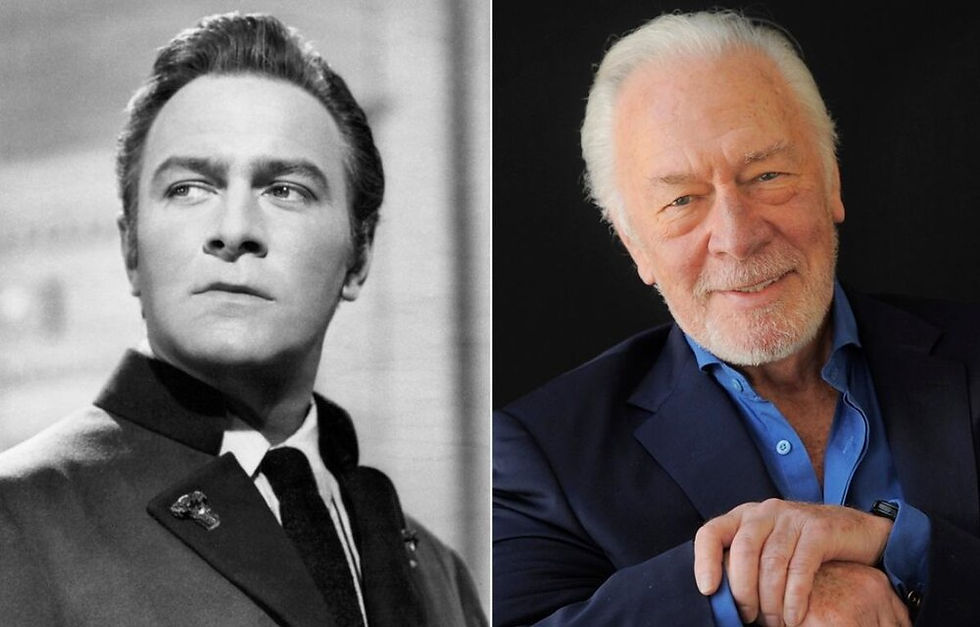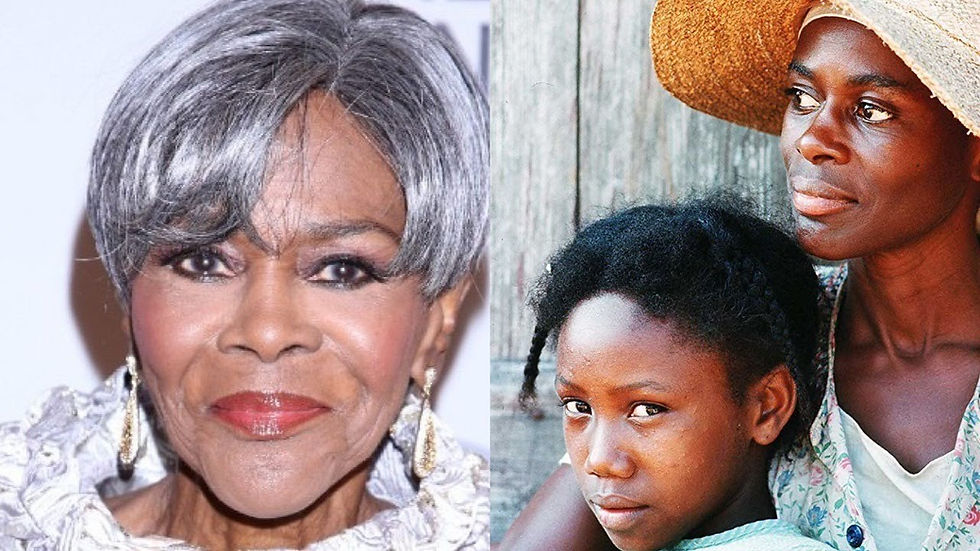Remembering Jack Palance
- Carrie Specht

- Nov 23, 2006
- 5 min read

A classic villain in his early years and an elderly icon in his later years, the actor who won the hearts of audiences for his comedic self-parody in City Slickers died of natural causes at his beloved home in Montecito, CA, surrounded by family. He was 87. If you’re not already a fan, read why you should be.
Jack Palance will forever be remembered, if not for his Oscar wining role in City Slickers, for his memorable 1992 Academy Awards acceptance speech for Best Supporting Actor, when he spontaneously broke out into calisthenics at the age of 72, no less! Eager to show the world (and casting agents) that he still had the vitality to work in the business, he dropped down and gave ‘em twenty. The inspired stunt caught the attention of everyone, including the night’s host (and Palance’s co-star in City Slickers), Billy Crystal, who spent the rest of the evening coming up with joke after joke about the senior citizen’s athletic ability. At one point Crystal even had Palance bungee jumping off the famed Hollywood sign.

Palance was certainly an inspired choice to play the comedic part of the grizzled cowboy who simultaneously befriends and frightens greenhorn Billy Crystal. Then again, it’s difficult now to imagine who else could have had the presence and bearing to make such an imposing character so damn appealing. Of course, that’s always the case when an actor, a real actor, embraces a role and makes it his own. That’s the sign of a true artist, a craftsman, and that’s what Palance was. There were many who had underestimated Palance due to his extreme looks, marking him as a particular type, but they were very wrong. His previous two Oscar nominations, his later win, and his extensive body of work proved it.

Like many Hollywood stories, it seems unlikely that a son of a Pennsylvania coal miner would ever have become an actor. Born with an unpronounceable Ukrainian name (Volodymyr Palanyuk), Palance had a brief career as a boxer during the 1930s. However, it was the fire of a burning B-24 that left Palance with extensive facial damage. The resulting surgery left him with the distinctive facial features he became known for, a chiseled and defined face, that only added to his already menacing appearance. Add in a hulking presence and his measured, low voice and you have one very chilling figure of a man.

Palance actually began his acting career on Broadway as the understudy to Marlon Brando in the stage version of A Streetcar Named Desire. Influenced by Brando and other New York actors, he became a proponent of the “Method” style of acting, so it’s not surprising that he made his screen debut under director and “Method” enthusiast Elia Kazan in the Richard Widmark drama, Panic in the Streets. Palance played a tough as nails city thug who bullies his underlings for their weaknesses, only to break out into near hysteria himself under the fear of being caught by the police. The dread and absolute panic he feels is written across his face and in every bold gesture, epitomizing the true nature of a petty criminal whose only real strength is in his muscles. His is a riveting performance that gels the drama of the film together, propelling the excitement and panic into a frenzy.

Within two years of this introduction, Palance received his first Oscar nomination for Best Supporting Actor for his role in the Joan Crawford vehicle, Sudden Fear. In the film, he played a diabolical husband to the movie diva who, with girlfriend Gloria Grahame, conspires to fleece his wife, only to face a tragic turn of events. Here, Palance has an amazing screen moment that can be described as nothing less than a cataclysmic epiphany. He is a lying and cheating husband who literally drags the audience’s sympathy kicking and screaming over to his side by exposing his hidden vulnerability when he realizes the person he just drove down in the street was not his intended victim, but the one woman he truly loved. His character completely falls apart before our eyes in a way that evokes an honest compassion for this lecherous philanderer. You can’t help but feel his pain.

The following year provided Palance with his first opportunity for a place in cinematic history and his second Academy nomination when he played the evil gunfighter Jack Wilson opposite Alan Ladd in the classic Western Shane. Here, a lesser actor would have presented the typical bad man as just that, but to his credit, Palance grabbed hold of the archetypal role and transformed it into a screen icon. The Bad Guy in Black was never so menacing, or ever will be, and is responsible in large part for so many people remembering and idealizing the hero, Shane.

Palance worked non-stop through the ’60s and ’70s in a variety of TV shows. Innumerable films roles followed, most often in Westerns. But interestingly enough, it was his turn as an aging boxer on television that brought him unparalleled attention during this period. His indelible performance in the production of Requiem for a Heavyweight (in a role Anthony Quinn later played in the film version), garnered the praise and attention of the critics and a well-deserved Emmy Award. Playhouse 90 was an exceptional example in the day of quality live television production. Requiem in particular was noted for the moving and electrifying live performance of its star, Palance, who showed a scope of talent equal to that of a Shakespearian actor, showcasing a tremendous depth and grace.

Palance was known throughout his career for possessing an imposing presence and establishing a lasting image since his dynamic and powerful early role as the lone gunslinger in Shane. His rugged and imposing personas demanded respect of other men. In the absence of a complete reveal of the damaged soul that lay beneath the exterior of his tough guy characters, there was always, at the very least, a glimpse at the cracks in the facade. This vulnerability gave the otherwise overbearing man a unique quality of sex appeal. In fact, his sex appeal seemed to increase as Palance matured in age. Grey hair and wrinkles only worked to enhance his virile features. It was at an “advanced” age when Palance made the ladies swoon over his playful turn in Baghdad Cafe. His portrayal of Rudi, an elderly artist who coaxes a cold and shy German tourist into posing for a portrait, is nothing short of an intoxicating testosterone cocktail.
The talented actor had well established himself by this point, and Baghdad helped to generate a career renaissance of sorts in the late ’80s with parts in Young Guns and Batman. After his success in City Slickers and its sequel, Palance made sporadic film and TV appearances, most recently in 2004’s Back When We Were Grownups. With a voice that rumbled with authority and a look so intense it was the definition of virile western manliness, it’s no surprise that his popularity grew and remained solid right up until his death. It’s perhaps because of his early work that his 180-degree comedic turn playing a crusty and menacing trail boss in the Billy Crystal comedy City Slickers was so notable and entertaining, and worthy of the Academy’s attention. May he rest in peace.




Comments